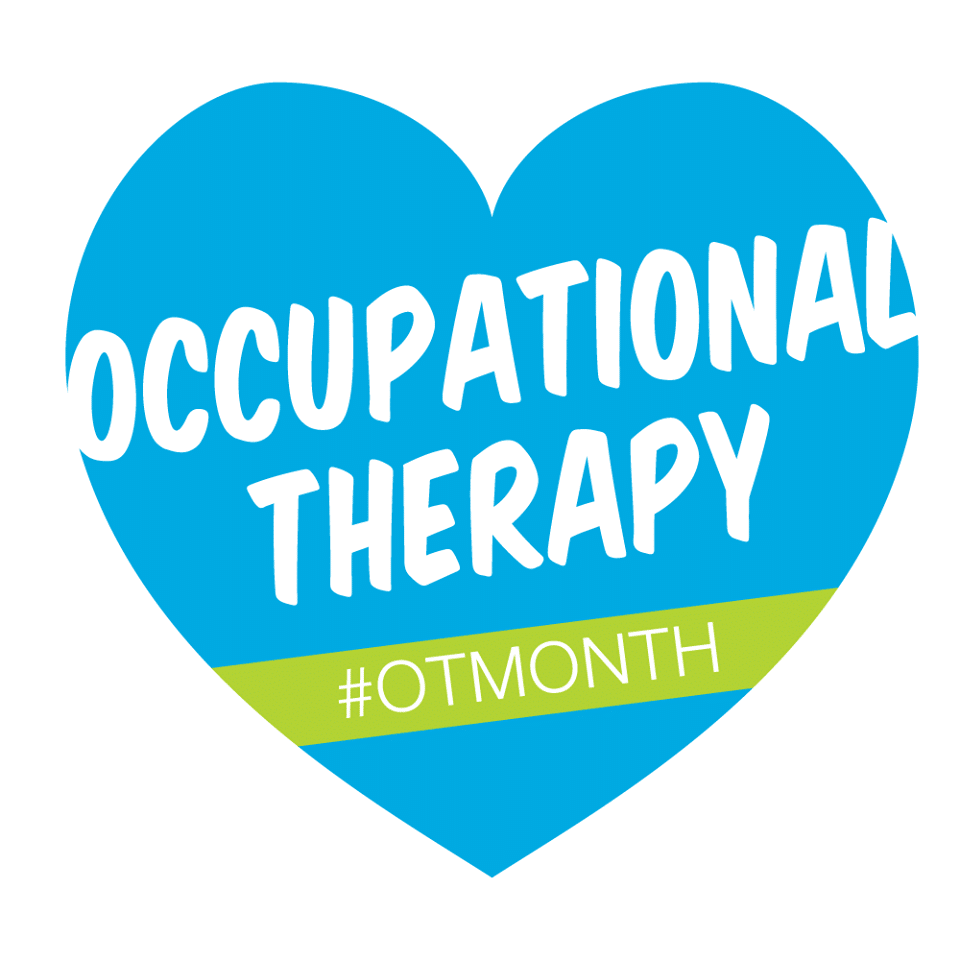April is Occupational Therapy Month, celebrating Occupational Therapists and the growing profession around the country. Although the field is highly recognized for its spectrum of services and areas of expertise, it also makes understanding what Occupational Therapy is that much more confusing. In the spirit of spreading awareness, advocating for the profession, and sharing my love for OT, I would like to shed some light on the wonderful world of Occupational Therapy.
More often than not, when a person hears about Occupational Therapy, there is an overwhelming assumption that an Occupational Therapist can find a person a job. That notion is not completely wrong, but the term “occupation” most literally stands for anything that occupies an individual’s time. My ideal response is, “Actually, an OT assists a person with the skills for the job of living.” See what I did there? Every person, from infancy to old adulthood, has a pretty meaningful occupation, and that is to LIVE. However, there are many challenges to living our lives to the fullest. That is when we call in an OT.
Occupational Therapists work in hospitals, clinics, education systems, daycare centers, skilled nursing homes, mental health facilities, and community programs, to name a few. Whether navigating childhood development, recovering from a stroke, coping with mental health difficulties, rehabilitating job skills, promoting wellness in a workplace, or developing accessible living spaces, Occupational Therapists offer their clients and communities a breadth of evidence-based, holistic knowledge for “living life to its fullest”.
Occupational Therapists assist individuals across their lifespan to do the things they want to do and participate in activities, roles, and routines that are meaningful to them. Occupational Therapists work collaboratively with clients, families, teachers, and caregivers to establish an occupational profile for the client. This approach considers the client as a whole person, paving the way for individualized treatment plans and goals based on what is meaningful in their everyday life.
Here at BRAINS, our skilled team of Occupational Therapists primarily assists children and families in navigating the complex challenges and demands of daily life. Through Occupational Therapy, our goal is to promote a child’s functional skills to reach his or her greatest potential for independence in meaningful occupations. An extensive background in human development, movement science, and psychology provides our therapists with a basis for considering the physical, social, and emotional demands of daily activities. With this knowledge, the therapist and client can develop a plan for adapting the physical demands of a task, modifying the environment or process, and/or develop skills necessary for independent participation.
Uniquely, Occupational Therapy recognizes the therapeutic use of occupation as a means and an end in therapy. This means that therapy goals and therapeutic activities are not a set of prescribed outcomes, exercises, or tasks, but are creatively developed by the therapist to include the client’s interests, their life roles, and their natural environments. (This is my favorite part!) In pediatric therapy, because a child’s primary occupation is play- we play! If a child is struggling with diminished core strength and postural control, they may play their favorite game or color a picture of their favorite character in session. The therapeutic magic occurs while the child is positioned on equipment that targets strength and stability, is encouraged to participate for increased durations, and is given the “just right challenge” to increase ability, but remain confident in their participation.
Occupational Therapy may facilitate more independent participation in the following occupations:
- Motor skills- strength, coordination, mobility
- Feeding and eating
- Sleep/rest
- Play- peer interaction, pretend play
- Academic skills- writing, typing, organization
- Self-care- dressing, brushing teeth, bathing, toileting, grooming
- Regulation- sensory processing, self-management
- Home management- cooking, cleaning, laundry
- Community participation
Occupational Therapy process at BRAINS:
- Initial evaluation- Comprised of standardized and informal assessment, parent/child interview, and clinical observation to determine needs, identify goals, and develop a treatment plan.
- Intervention- An individualized plan with recommended frequency and duration of services to improve participation in daily occupations and meet goals.
- Customized resources, home exercises/activities, and ongoing communication on progress, strengths, areas of need, and recommendations for transferring skills to natural environments.
- Collaboration with parents, caregivers, teachers, and other team members to support client’s functional independence in their daily lives.
If you may be interested in starting the process for Occupational Therapy services at BRAINS, please contact our office to schedule an initial evaluation with any of our three Occupational Therapists. If you are a current BRAINS client, be sure to keep an eye out for some of the fun ways our OT department is celebrating Occupational Therapy Month around the building. Our amazing clients have contributed their creative projects, physical efforts, and insights to demonstrate how Occupational Therapy has impacted their lives.
I will never be able to fully describe the breadth and value of this profession that I am so passionate about, but I am grateful every day to practice in a field where I am given the opportunity to assist others in identifying and fostering what is meaningful to them. Thank you, from the Occupational Therapy team at BRAINS, for allowing us to be a part of your life and journey toward independence.
Happy Occupational Therapy Month!
Jen Rodriguez, MS, OTR/L
Pediatric Occupational Therapist
